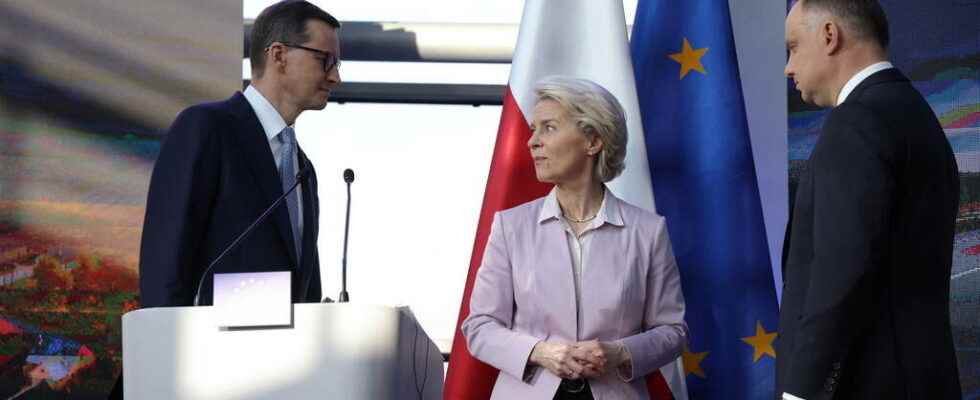Independence of the judiciary, violations of human rights… Poland is in the sights of the European Union for its breaches of the rule of law. But would the EU be more conciliatory today towards this country which hosts most of the Ukrainian refugees on its soil? Answers with Adam Bodnar, Polish jurist and professor of law specializing in human rights issues.
RFI: The European Commission has just given the green light to the recovery plan in Poland, blocked for more than a year for non-respect of the rule of law. The Polish authorities have backtracked on a contested justice reform, but do you think that is enough?
Adam Bodnar: In my opinion, the European decision comes too soon because what has been adopted by the Polish Parliament does not solve the problems concerning the judicial system. The new chamber, the professional responsibility chamber which will replace the disciplinary chamber, does not guarantee the independence of the judiciary with regard to proceedings initiated against judges. In addition, there is a major problem which the Commission has not yet looked into, which is that the National Judicial Council is selected mainly by politicians and not by judges. And unfortunately the party in power (the national-conservative Law and Justice party, editor’s note) has a lot of weight in the choice of judges who are appointed. And we can see that the judges who were appointed by the National Judicial Council do not behave in a very independent way.
Has the war in Ukraine changed the view of the European Union on Poland, does it tend to be more conciliatory because the Poles host the majority of Ukrainian refugees?
It is not only the European Union but also the United States which has a major geopolitical role here. Poland has become a vector for military transport, the transport of weapons and other support to Ukraine. And suddenly the United States wants to have good cooperation with the Polish authorities. I agree with that but at the same time the pressure that can be exerted for respect for the rule of law is less.
And I think it’s the same with the European Union. The European Union prefer to have a country, Poland, which will continue to cooperate with it on subjects such as the adoption of new sanctions, energy policy, climate policy… All this because we are in a period of turbulence. This means that the European Commission is not as strong as it has been in the past when it comes to respecting values. In my opinion, she has a short-sighted approach. The Commission should respond more firmly to threats to values. Because the whole idea of European integration is based on values and we cannot hide them. Otherwise we will end up with another country within the European Union, in addition to Hungary, which will be an authoritarian country, and this is in no one’s interest.
What rights do you think are threatened today in Poland?
The major problem is access to justice because if you don’t have an independent tribunal, one can wonder whether the rights of citizens are guaranteed. We have a lot of cases going to the European Court of Human Rights right now. Furthermore, we have a problem with public services. If you work as a civil servant and want to survive, it is better to be loyal to the ruling party, especially if you are a judge or a prosecutor, otherwise you will expose yourself to problems. And that raises questions about the integrity of these public services. Otherwise, we have a lot of concerns about LGBT+ rights, their rights are not guaranteed. (…) And then of course women, who have very restricted access to abortion, because of a decision by the Constitutional Court.
What can the European Commission do to encourage Poland to respect these rights?
The Commission and the other European institutions must pay as much attention as possible to the situation in Poland (…). Perhaps the Polish government will be less inclined to use all these new instruments and take advantage of them in future elections. But I don’t think the Commission should do more, we should wait for the elections. The opposition must win the elections to reverse the course of history in Poland. Although international pressures may delay the harmful effects of the current policy on the lives of Polish citizens and their rights.
